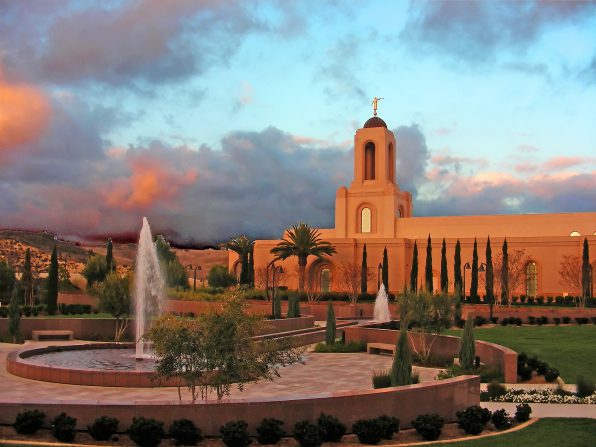
(LDS Media Library)
I’ve just returned from meeting with several elders and sisters from the California San Diego Mission, as well as with their mission president and his wife and an Iraqi-born convert to the Church of Jesus Christ of Latter-day Saints. This was an unexpected treat. It was not on my schedule when I came down.
These missionaries have been called to serve in an Arabic-speaking program. (One of them is a native speaker from Irbid, Jordan. At least two of them have been students in BYU’s Arabic-speaking program, including its Jordanian intensive Arabic semester. Several were called to serve after arriving in the San Diego area.) There is apparently another such program — for understandable reasons — in the Detroit area, and I wouldn’t be surprised to learn that yet another such program is or might be in Toronto, a place of wide ethnic diversity where a great many people of Middle Eastern origin have also come to reside.
They had lots of questions about how to speak with Muslims, how to teach Chaldean Christians, and so forth. I have to admit that I’m dazzled to see actual Arabic-speaking missionaries — and I’ve already seen Arabic-speaking returned missionaries, from this — during my lifetime. Moreover, the mission president says that a Persian-speaking unit will soon be assigned to the California San Diego Mission, along with three Persian-speaking elders. (Persian is already being taught at the Missionary Training Center, and Arabic may soon begin to be taught there.) For some time now, the mission has had an Arabic-speaking unit.
We had a good discussion. I don’t have any “magic bullets” or “secrets to success” to pass on, but I hope I was at least somewhat helpful.
We’ve wondered for a long time how the Gospel would be taken to the Middle East. Now, in a very real sense, the Middle East is coming to West. And it has been my conviction for quite a while that, when the message is taken in a larger way to the Middle East itself, the people who will be carrying it won’t initially or even primarily be Anglophone missionaries, but people who are themselves of Middle Eastern origin and who have encountered the Gospel in the West as part of a diaspora of Arabic, Persian, Kurdish, Turkish, Afghan, and other peoples. They will have the street smarts, the cultural savvy, the linguistic ability, and the kin-networks and relationships that foreign missionaries would lack.
Posted from San Diego, California










